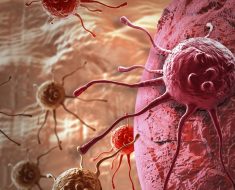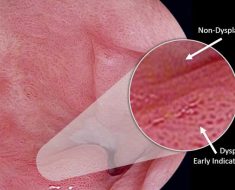If there’s one thing we love about TikTok, it’s the unending stream of viral lifestyle hacks. While these are often fun beauty tips, recipes or styling suggestions or even some thoughtful wellness communities, it gets dangerous when harmless hacks pivot to un-researched medical advice that so often aims to replace consulting a certified physician who knows your body and your own health situation.
Scroll through your ‘For You Page’ and you’re bound to stumble across a self-proclaimed period guru or naturopath offering up some clickbait-y advice about how “you, too, can balance your reproductive hormones.”
In the holistic health world, conditions like irregular or painful periods, gut problems and even some chronic autoimmune diseases, are frequently chalked up to “hormone imbalances” (like the so-called “estrogen dominance” that has been circulating on TikTok recently). The proposed solution? Fad diets, estrogen detoxes, or even pricey hormone health coaching.
In early 2021, OBGYN and influencer Dr. Jessica Geida took to Instagram to shut down the misconstruction that your cyclical reproductive hormones can even be imbalanced in the first place — specifically warning against the exploitative business model of some holistic practices that prey on patients who feel unheard as they experience frustrating or stubborn symptoms and ailments.
Dr. Geida runs the popular Instagram page, @smilesandscrubs, where she aims to amplify accurate information and dispel myths about reproductive healthcare. Under her post, the comments section was jam-packed with discussion — especially by other OBGYNs echoing and elaborating on her statement and patients who shared a range of stories about feeling unheard when seeking relief from their symptoms or experiences of being left feeling confused and exploited by holistic wellness practices.
“Just because I don’t believe in reproductive hormone imbalance doesn’t mean that I don’t support, or listen to, or believe [people] when they tell me something isn’t right,” Dr. Geida’s post reads. “But myths don’t help.”
Dr. Jen Gunter, OBGYN, author, and multifaceted influencer (and one of the commenters on Dr. Geida’s post), offers that the misconceptions about reproductive hormone imbalance may have first stemmed from a misplaced analogy.
“Balance is just a bad term. I think it originated with how we try to describe the hormonal impact on the lining of the uterus: having enough progesterone in relation to estrogen. And I think [the term] metastasized,” explains Dr. Gunter. “But it’s not really a balance, it’s an effect and a response. It’s two things working together.”
During a menstrual cycle, the hormones progesterone and estrogen fluctuate in relation to each other— completely changing day-to-day. As these levels change, they trigger different parts of the cycle like ovulation and menstruation. Because of this cyclical pattern, hormone tests rarely provide helpful insight without extensive monitoring and prior consultation with your physician.
When your physician does decide to conduct a hormone test, they are looking at these levels in conjunction with symptoms to work toward a diagnosis— the numbers alone provide minimal context.
Expensive hormone tests can put an unnecessary dent in your pocket (many aren’t covered by insurance), while other holistic suggestions like extreme detoxing can even be dangerous. Many of these hormone hacks have been popularized on TikTok by users dubbed “Dr.” So-and-so, but taking a further look reveals that most of these users are not actual M.D.s.
It’s important to emphasize that hormone coaching and detoxing are not well-studied or scientifically-backed solutions for stubborn symptoms like PMS, painful periods and weight gain.
“The majority of people don’t need hormone testing. You have to ask, ‘what are the symptoms?,’ and then work backward from there,” explains Dr. Gunter. “There could be other hormones that are involved, so each symptom or symptom complex may require a different set of testing.”
While there’s no chance you’ll be diagnosed with a hormone imbalance, your physician may be able to use tests in conjunction with other steps to diagnose specific conditions — like PCOS, thyroid disorder or hypothalamic amenorrhea, a condition where the brain isn’t triggering your body to ovulate.
So, If you are concerned about your symptoms, skip the TikTok hacks and consult your gynecologist or medical provider.
A version of this story was published March 2021.
Before you go, check out a few of these OMG, WTF products that are actually on Goop right now:

Source: Read Full Article





